 W
WThe Algonquin to Adirondacks Collaborative (A2A) is an environmental NGO, a registered charity, and a not-for-profit multi-national. This network of partners works together to connect lands and people from Algonquin Provincial Park in Ontario, Canada to the Adirondacks in New York State. The Algonquin to Adirondacks region represents a critical link for biodiversity and resilience in North America.
 W
WThe Ancient Forest Alliance is a grassroots environmental organization in British Columbia, Canada. It was founded in January, 2010, and is dedicated to protecting British Columbia's old growth forests in areas where they are scarce, and ensuring sustainable forestry jobs in that province.
 W
WBC Ecosocialists is a provincial political party in British Columbia, Canada. Its stated aims include steering the province to a greener society and fighting discrimination against the First Nations and immigrants. Formed in 2019, the 2020 British Columbia general election was expected to be its first.
 W
WThe Canada Green Building Council (CaGBC) was created in 2003 to further the expansion of green building in Canada. Prior to the formation of the Council, Canada had participated in the United States Green Building Council (USGBC) through British Columbia's membership in the USGBC's Cascadia Chapter.
 W
WThe Canadian Association of Physicians for the Environment (CAPE) is a Canadian-based non-profit organization dedicated to environmental issues, especially as they relate to human health. The group was founded in 1994, and is composed of over 4,700 medical doctors and concerned citizens from across Canada. Its main focus is education of physicians and members of the public, sending delegates to scientific conferences, publishing opinion articles, talking to the media, and disseminating educational materials. It also makes presentations to parliamentary committees.
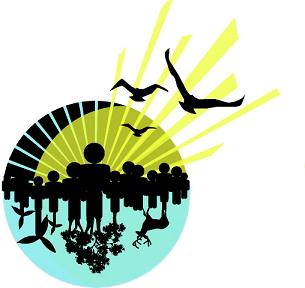 W
WThe Canadian Youth Climate Coalition (CYCC) is a nonprofit youth organisation in Canada. The coalition consists of various youth organisations, which includes the Canadian Federation of Students, the Canadian Labour Congress, Sierra Youth Coalition, and others. The charity aims to prioritize climate change as a societal issue. Internationally, the coalition is part of the Global Youth Climate Movement.
 W
WThe Craik Sustainable Living Project (CSLP) is a nonprofit organization for sustainable development that aims to advance the local use of more ecologically sound technologies and ways of living in rural Saskatchewan, Canada. The four key components of the project are the eco-centre, outreach and education programs, community action, and the ecovillage.
 W
WDucks Unlimited (DU) is an American nonprofit organization 501(c) dedicated to the conservation of wetlands and associated upland habitats for waterfowl, other wildlife, and people. It has had a membership of around 700,000 since January 2013.
 W
WEdmonton and Area Land Trust (EALT) is a regional non-profit organization based in Edmonton, Alberta, Canada. EALT promotes conservation of the natural heritage of Edmonton and area through private stewardship, and is registered as a charitable agency with the Canada Revenue Agency. The land trust stewards nine natural areas in the Edmonton area.
 W
WEnvironmental Defence is a Canadian environmental organization, founded in 1984. Its areas of education and research include toxic chemicals, urban sprawl, oil sands, global warming, water quality, and endangered species.
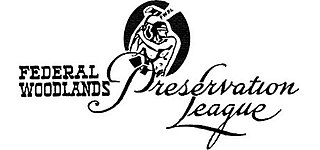 W
WThe Federal Woodlands Preservation League was created by a group of citizens worried about the massive logging near Meech Lake and Kingsmere. It began urging the Canadian Federal Government in 1934 to take action on preserving the Gatineau Hills' woodlands. It is credited with creating Gatineau Park.
 W
WThe Green Party of Alberta is a registered political party in Alberta, Canada, that is allied with the Green Party of Canada, and the other provincial Green parties. The party was registered by Elections Alberta on December 22, 2011, to replace the deregistered Alberta Greens, and ran its first candidates for office in the 2012 provincial election under the name Evergreen Party of Alberta. The party changed its name to "Green Party of Alberta" on November 1, 2012.
 W
WThe Green Party of Nova Scotia is a green political party in the Canadian province of Nova Scotia. It received official party status in the province in April 2006. The party has not won any seats in the Nova Scotia House of Assembly.
 W
WThe Saskatchewan Green Party is a political party in the Canadian province of Saskatchewan.
 W
WGreenPAC is a Canadian non-profit environmental organization, founded in 2014. Its goal is to help recruit, elect, and support environmental leadership in Canadian politics, across the political spectrum.
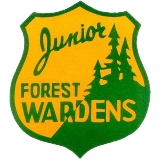 W
WThe Junior Forest Wardens (JFW) is a Canadian volunteer-led organization focused on developing a wild lands conservation ethic in youth. The organization is almost a hundred years old. It began in the 1920s, when a group of boys reported a forest fire to a local forest ranger in the province of British Columbia. The magazine "Forest and Outdoors", which was published by the Canadian Forestry Association (CFA), devoted a section to the activities, interests, and education of children. When a story was published in 1929 about how two boys discovered a small forest fire on Snug Cove on Bowen Island in British Columbia and assisted a Ranger in putting it out, an interest in this type of assistance grew. In the publicity that followed this incident, boys across the province wrote to find out what they could do to help in similar ways. As a result of this, Charles Wilkinson, a member of the Canadian Forestry Association in the region, formed the Junior Fire Warden program as a vehicle for teaching boys about forest protection.
 W
WLiving Oceans Society is a Canadian environmental organization that has been a leader in the effort to protect Canada's oceans since 1998. It is based in Sointula, British Columbia, with a satellite office in Vancouver, British Columbia. Living Oceans Society's vision states that: Canada's oceans are sustainably managed and thriving with abundant sea life that supports vibrant and resilient communities.
 W
WMahone Islands Conservation Association, or MICA, is a not-for-profit organization dedicated to the conservation of islands and shoreline of Mahone Bay, Nova Scotia, Canada. The association was formed in reaction to private development of the area's islands which displaces nesting seabirds and threatens to spoil the landscape.
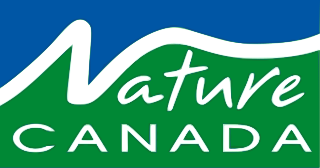 W
WNature Canada is a member-based environmental organization headquartered in Ottawa, Ontario. Its supporters include more than 100,000 individuals and over 800 affiliated organizations, including local and provincial naturalist clubs.
 W
WThe NOW! Organization is a Canadian non-profit, youth-run, sustainability organization based in Vancouver, British Columbia.
 W
WThe Ontario Sustainable Energy Association (OSEA) is a non-profit organization supporting the growth of renewable energy and Community Power projects in the Canadian Province of Ontario. OSEA advocated an advanced renewable energy Feed-in Tariff program for Ontario, resulting in the creation of the Renewable Energy Standard Offer Program, a precursor to the Green Energy Act and, in 2007, the most progressive energy policy in North America in a decade. OSEA has approximately 130 community and industry members as well as individual members. The affairs of the Association are managed by a Board of Directors elected by the membership.
 W
WThe Pembina Institute is a Canadian non-profit think tank focused on energy. Founded in 1985, the institute has offices in Calgary, Edmonton, Toronto, Ottawa and Vancouver. The institute aims to "reduce the harmful impacts of fossil fuels while supporting the transition to an energy system that is clean [and safe]..."
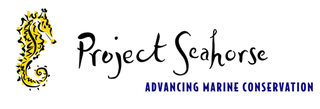 W
WProject Seahorse is a marine conservation organization committed to the conservation and sustainable use of coastal marine ecosystems in general, and seahorses in particular. It is based at the Institute for the Oceans and Fisheries, Canada, and Zoological Society of London, UK. Project Seahorse generates cutting-edge research and uses it for highly effective conservation interventions in fisheries, protected areas, trade and policy. Directed by Prof. Amanda Vincent, a global leader in marine conservation, Project Seahorse collaborates with researchers, governments, conservation groups, industry and local communities worldwide.
 W
WRegenesis is Canadian-based, university focused environmental organization. Regenesis has chapters at university and college campuses across Canada. Each university chapter is independent and democratically run.
 W
WSecond Harvest is Canada's largest food rescue charitable organization with a dual mission of environmental protection and hunger relief. They recover and redistribute perishable, nutritious, unsold food before it becomes waste to a broad network of 1200 social service organizations. Their service helps nourish people through school programs, seniors' centres, homeless shelters, food banks, and regional food hubs. In 34 years, Second Harvest has rescued over 155 million pounds of healthy food, preventing 192 million pounds of greenhouse gases from entering the atmosphere.
 W
WSierra Club Canada (SCC) is a Canadian environmental organization. It is part of the environmental movement.
 W
WThe Stanley Park Ecology Society (SPES) is a non-profit organization founded in 1988 that works alongside of the Vancouver Board of Parks and Recreation to promote stewardship and conservation in Stanley Park. The park is an urban oasis located in Vancouver, British Columbia, Canada and is important because it adds value to the city while providing environmental and cultural benefits. With an abundance of wildlife, the Stanley Park Ecology Society protects the species of Stanley Park through conservation.
 W
WSustainable Waterloo Region is a not-for-profit organization headquartered in Waterloo, Ontario, Canada with a mission to foster collaborations that enable local organizations to convert their sustainability interest into action.
 W
WTree Canada is a non-profit charitable organization that promotes the planting and nurturing of trees in Canada's urban and rural areas. It provides tree-related education, technical assistance and resources to communities, corporations, individuals and non-profit organizations.